|
|
Igor Markevitch (Conductor, Composer, Arranger) |
|
Born: August 9, 1912 - Kiev, Ukraine
Died: March 7, 1983 - Antibes, France |
|
Igor Markevitch [Markevich; Ukrainian: Ігор Маркевич] was a Ukrainian, Italian, and French composer and conductor. Born in Kiev, son of the pianist Boris Markevitch and Zoya Pokitonov, Markevitch moved with his family to Paris in 1914 and Switzerland in 1916. Alfred Cortot discovered his musical ability and took him to Paris in 1926 for training as a composer and pianist at the Ecole Normale , where he studied under Cortot and Nadia Boulanger.
Igor Markevitch gained recognition in 1929 when he was discovered by Serge Diaghilev, who commissioned a Piano Concerto from Markevitch and desired him to collaborate on a ballet with Boris Kochno. In a letter to the London Times Diaghilev hailed Markevitch as the man who would put an end to 'a scandalous period of music ... of cynical-sentimental simplicity'. The ballet project came to an end with Diaghilev's death on August 19, 1929, but Markevitch's works were accepted by the publisher Schott and he continued to produce at least one major work per year during the 1930’s, being rated among the leading contemporary composers. He started being hailed as "the second Igor" - the first Igor being Igor Stravinsky.
Igor Markevitch collaborated on a ballet, Rébus with Leonid Massine (1931) and another, L'envol d'Icare (1932) with Serge Lifar; neither was staged, though both scores were performed as concert works. L'envol d'Icare, based on the legend of the fall of Icarus, which Markevitch himself recorded in 1938 with the Belgian National Orchestra, was especially radical, introducing quarter-tones in both woodwind and strings. (In 1943 he recomposed the work under the title Icare, eliminating these, rescoring and simplifying the rhythms.) Béla Bartók once described Markevitch as "...the most striking personality in contemporary music..." and cited him as an influence on his own composing. An independent version of L'envol d'Icare for two pianos and percussion, which B. Bartók heard, is believed to have influenced B. Bartók's own Sonata for 2 Pianos and Percussion.
Igor Markevitch continued composing as war approached but not long after completing his last original work, the Variations, Fugue and Envoi on a Theme of Handel for piano, in October 1941 he fell seriously ill. After recovering, he decided to give up composition and focus exclusively on conducting. His last compositional activities were the revision of L'envol d'Icare and arrangements of other composer's music, of which the version of The Musical Offering (BWV 1079) by J.S. Bach is especially notable.
Igor Markevitch made his debut as a conductor at age 18 with the Concertgebouw Orchestra Amsterdam. As a conductor, he was well-respected for his interpretations of the French and Russian repertory and of 20th-century music. He settled in Italy and became an Italian citizen. During World War II he was active with the partisan movement. He relocated again, to London in 1953, and then to Switzerland. Beginning in 1965 he worked for the Spanish Orquesta Sinfónica de RTVE.
In 1970, after ignoring his own compositions for nearly 30 years, Igor Markevitch conducted a concert of his own music in Brussels and thereafter a slow revival of his original works began. He died suddenly from a heart attack in Antibes on March 7, 1983.
His brother Dimitry Markevitch was a notable musicologist and cellist. Markevitch's first wife was Kyra Nijinska, a daughter of the ballet dancer Vaslav Nijinsky. They had one son, Vaslav, before divorcing. His second wife was Donna Topazia Caetani, the only child of Don Michelangelo Caetani dei Duchi di Sermoneta and his wife, the former Nobile Cora Maria Antinori, who ran the boutique of the Paris decorating firm Jansen. Their son is the conductor Oleg Caetani, who is presently chief conductor and artistic director of the Melbourne Symphony Orchestra. Markevitch also had two daughters with Topazia, Allegra (b 1949) and Nathalie (b 1951). After his wife's death, he became the companion of Carlotta Garriga. |
|
Works |
|
Noces , suite for piano (1925)
Sinfonietta in F major (1928-1929)
Piano Concerto (1929)
Cantate for soprano, male chorus & orchestra (1929-30) (text by Jean Cocteau)
Concerto Grosso (1930)
Partita for piano and small orchestra (1930-1931)
Serenade for violin, clarinet and bassoon (1931)
Rébus, ballet (1931)
Cinéma-Ouverture (1931)
Galop for 8 (or 9) players (1932)
L'envol d'Icare – ballet (1932); recomposed as Icare (1943)
Hymnes for orchestra (1932-33) (revised version 1980 with ad lib contralto and extra movement orchestrated from no. 3 of Trois poèmes of 1935)
Petite suite d’apres Schumann for small orchestra (1933)
Psaume for soprano and small orchestra (1933)
Le paradis perdu, oratorio (1934-35) (text by Markevitch after John Milton)
Trois poèmes for high voice and piano (1935) (texts by Cocteau, Plato, Goethe); No.3 orchestrated 1936 as Hymne à la mort, incorporated 1980 into Hymnes for orchestra
Cantique d’amour for orchestra (1936)
Le nouvel âge, sinfonia concertante for orchestra with 2 pianos (1937)
La Taille de l’homme, 'concert inachevée' for soprano and 12 instruments (1938-1939, unfinished, but Part I complete and performable)
Stefan le poète, 'impressions d’enfance' pour piano (1939-1940)
Lorenzo il magnifico, sinfonia concertante for soprano and orchestra (1940) (texts by Lorenzo de Medici)
Variations, Fugue et Envoi on a Theme of Handel for piano (1941)
Le Bleu Danube, valse de concert on themes by Johann Strauss (1944)
6 Songs of Mussorgsky arranged for voice and orchestra (1945)
The Musical Offering (BWV 1079) by JS Bach arranged for triple orchestra (1949-1950)
Theory:
Historical, analytical and practical studies of Beethoven symphonies (Die Sinfonien von Ludwig van Beethoven: historische, analytische und praktische Studien; published by Edition Peters, Leipzig, 1982) - popular literature for conductors, although disputed. |
|
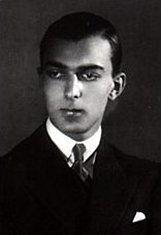
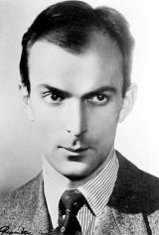


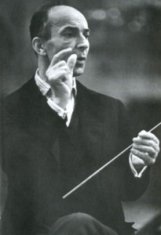
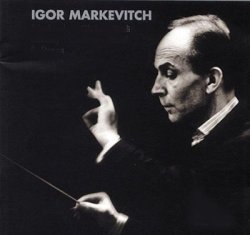
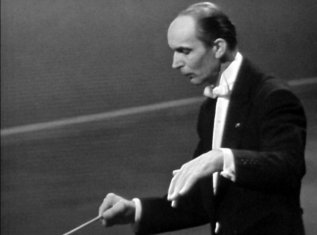
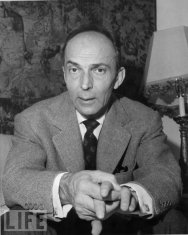
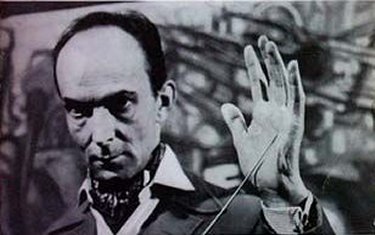
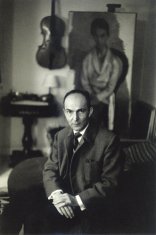
|
|
Source: Wikipedia Website (June 2010)
Contributed by Aryeh Oron (July 2010) |
|
Igor Markevitch : Short Biography | Arrangements/Transcriptions: Works | Recordings of Works for Orchestra |
|
Recordings of Arrangements/Transcriptions of Bach’s Works |
|
Conductor |
As |
Works |
|
Igor Markevitch |
Orchestra |
Bach-Markevitch: Musical Offering BWV 1079, arranged for three orchestral groups and solo quartet |
|
Links to other Sites |
|
Igor Markevitch - Biography (AMG)
Igor Markevitch (Wikipedia)
Igor Markevitch biography (Boosey & Hawkes)
Igor Markevitch (Classical Composers Database)
Igor Markevitch Biography (Naxos)
Igor Markevitch [Igor Markevich] Biography (Other Free Encyclopedias: The Arts: Fine Art, Contemporary Art & Music
Igor Markevitch, Conductor; Led Several Major Orchestras – Obituary (NY Times)
Igor Markevitch 1912-1983 (Classical Music CD) |
|
|